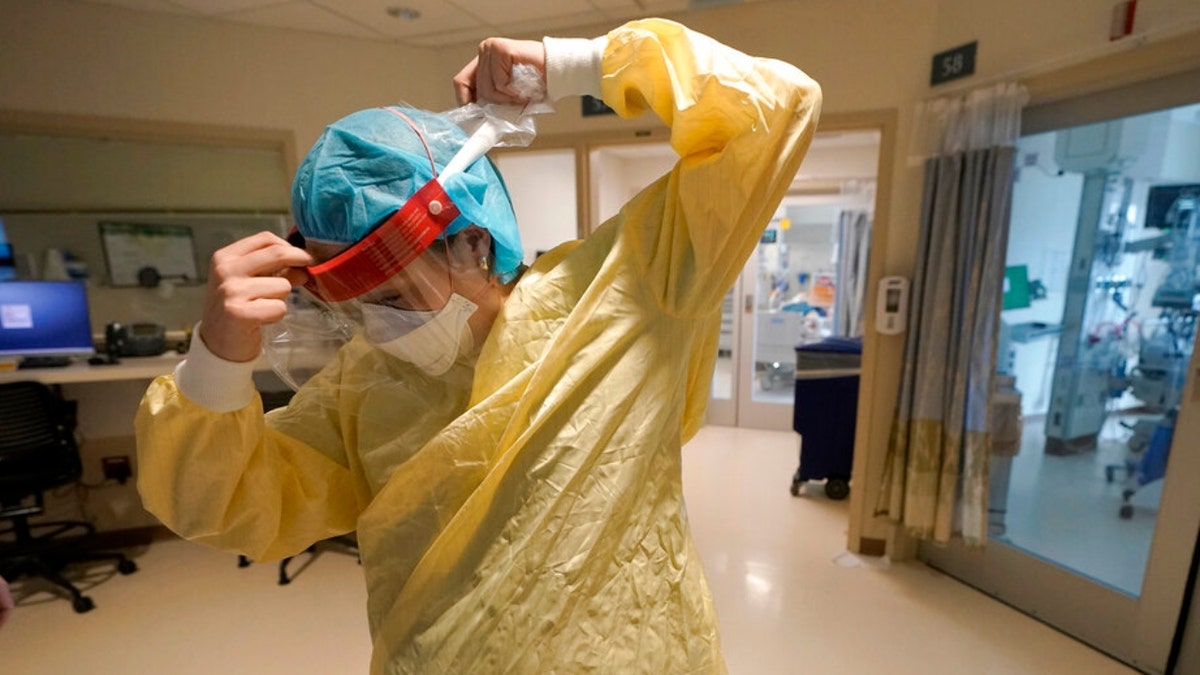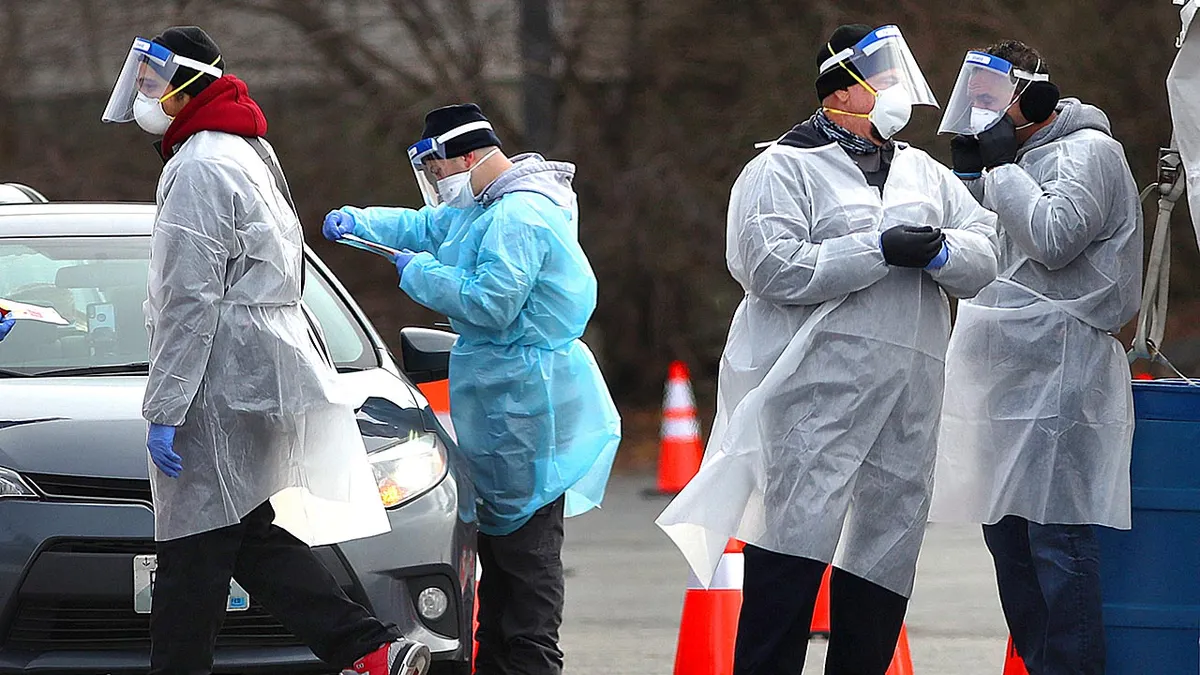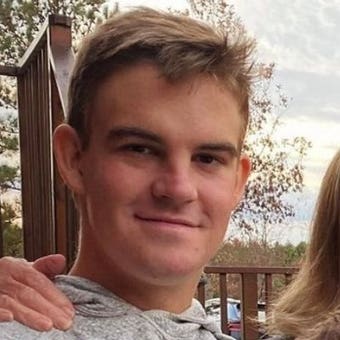Nursing homes see surge in COVID-19 cases amid staffing shortages
Correspondent Bryan Llenas reports the latest from Andover, New Jersey.
Nearly 23% of hospitals throughout the United States reported critical staffing shortages on Tuesday as COVID-19 cases continue to surge, according to data released by the Department of Human and Health Services.
Out of 4,294 hospitals that reported to the HHS, 975 said they didn't have enough nurses and doctors.
The staffing shortage comes as 80.8% of all ICU beds were full on Tuesday, 30.8% of which were being used for COVID-19 patients.

Registered nurse Sara Nystrom, of Townshend, Vt., prepares to enter a patient's room in the COVID-19 Intensive Care Unit at Dartmouth-Hitchcock Medical Center, in Lebanon, N.H., Jan. 3, 2022. (AP Photo/Steven Senne, File)
Several states have implemented emergency measures to deal with the shortage.
The situation is so dire in California that the state's health department announced Saturday that nurses who test positive for COVID-19 can stay at work as long as they are asymptomatic and only interact with COVID-19 patients.
On Tuesday, 143 out of 199 hospitals in California that reported data to the HHS said they were dealing with a critical staffing shortage.
Under CDC guidelines, health care workers who test positive for COVID-19 can return to work immediately if a hospital enters "crisis" mode. Otherwise, health care personnel are advised to wait five days to return to work as long as their symptoms are improving.

In this Nov. 19, 2020, file photo, a nurse works on a computer while assisting a COVID-19 patient at a hospital in Los Angeles. (AP Photo/Jae C. Hong, File)
Virginia Gov. Ralph Northam issued an executive order on Monday that allows out-of-state medical workers to work in Virginia, lifts bed licensing requirements, and increases provider-to-patient ratios for 30 days.
"Health care workers and hospitals are exhausted, and they are again facing increasing numbers of patients, affecting their ability to provide care," Northam said Monday.
Several states have activated the National Guard to assist hospitals during the staffing crunch, including Massachusetts, Ohio, and Maine.
OMICRON, DELTA HAVE FUSED INTO NEW 'DELTACRON' STRAIN
The United States set a new record for COVID-19 cases on Monday with 1,406,527 infections, according to the CDC. The 7-day average for new cases now stands at 750,996, about three times higher than the peak last winter of 250,454 on Jan. 11 of 2021.

Health care workers on hand as they administer COVID-19 tests in the parking lot at McCoy Stadium in Pawtucket, RI on Dec. 8. (Photo by John Tlumacki/The Boston Globe via Getty Images)
Omicron, which studies show is more transmissible but less lethal than previous variants, now accounts for 98.3% of all new cases in the United States.
CLICK HERE TO GET THE FOX NEWS APP
The CDC said that it took the economic and "societal impact" into account when it halved the isolation and quarantine time from 10 days to 5 days for all workers nationwide.
"Spread of the Omicron variant has the potential to worsen staffing shortages and increase supply chain challenges, which jeopardize industry, education, and other systems that are essential to maintain a functioning society and economy," the CDC explained.











































